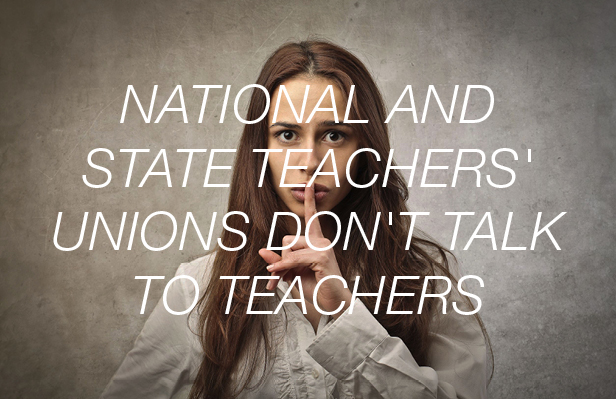Media

National, State Teachers’ Unions Don’t Talk to Teachers
A survey of National Education Association (NEA) members, summarized by the Educational Intelligence Agency, reveals most teacher union members never hear from state and national union officials.
While most teachers surveyed said they had met with local union representatives, a majority had no contact with anyone at the state affiliate (like the PSEA) or anyone at the NEA.
More than 60 percent had zero contact with the state affiliate board, more than 70 percent had zero contact with an RA delegate, and more than 80 percent had zero contact with a member of the NEA board of directors.
As a case in point, PSEA President Mike Crossey testified in a December hearing against using teacher evaluations, but did insist on keeping seniority—only in furloughs and rehiring of teachers—even though the seniority system hurts teachers and students. When Rep. Mark Gillen asked Crossey what his members thought, and if he could share a survey from teachers, Crossey said the PSEA hadn’t conducted a survey of its members on the issue.
After all, why would state and national union reps bother talking to rank and file members? They never have to ask their members for money, with school districts collecting dues and political money right from teachers’ paychecks and then sending the money on to the PSEA (and the PSEA sending the money on to the NEA).
This is unfortunate, given as the lion’s share of union dues go to support the PSEA and NEA—$498 and $182, respectively last year for full time teachers. The PSEA reported spending $3.8 million on political activities and lobbying with those dues, while the NEA spent $45 million.
This is why paycheck protection—requiring union leaders to actually collect dues and political money from members—would benefit teachers and state workers.